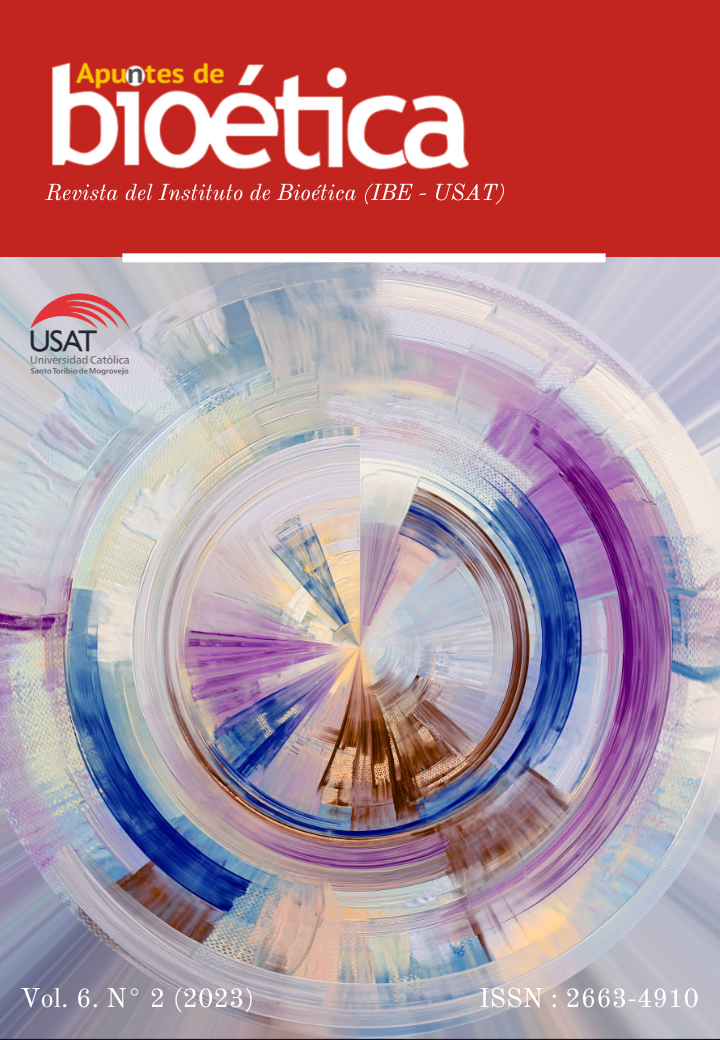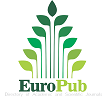The transformation of the role of the medical professional
challenges, renewal, and responsibility
Abstract
The medical profession, influenced by various historical and contemporary factors, is in constant evolution. Technological advances, social changes, economic factors, and scientific developments have shaped the perception of physicians in society. Ethical self-regulation, along with high-quality medical education, is essential for preparing competent and ethical professionals. 21st-century physicians play a crucial role in healthcare, health education, and health promotion. Despite challenges such as monopoly and elitism, it is argued that these do not necessarily diminish the prestige of the profession and can be ethically addressed. Technology has improved medical diagnosis and treatment, as well as telemedicine, but it poses ethical and privacy challenges. Finding a balance between technology and patient-centered care is essential. Likewise, the increase in bureaucracy in healthcare raises concerns about the quality and efficiency of services, but strategies are being implemented to address these issues and maintain patient-centered professionalism. Medicine is a constantly changing discipline that adapts to a dynamic environment while upholding ethical values and the quality of care. The medical profession will evolve with technological and social advances, and it is crucial to preserve ethics and humanity in future medical practice.
Downloads
References
Abad Gómez, H. (s.d.). La salud, el estado y la profesion medica. Boletín de La Oficina Sanitaria Panamericana (OSP);37(5),Nov. 1954. https://iris.paho.org/handle/10665.2/12040
Bhugra, D. (2014). All medicine is social. Journal of the Royal Society of Medicine, 107(5), 183-186. https://doi.org/10.1177/0141076814525069
Bunker, J. P. (2001). The role of medical care in contributing to health improvements within societies. International Journal of Epidemiology, 30(6), 1260-1263. https://doi.org/10.1093/ije/30.6.1260
Ceriani Cernadas, J. (2014). La tecnologia medica como objeto de la etica. Archivos argentinos de pediatría, 112, 298-299. https://doi.org/10.5546/aap.2014.298
Ceriani, J. (2010). Reflexiones acerca de la percepción que tiene la sociedad de la medicina y los médicos. Arch Argent Pediatr, 108(6), 484-485. https://www.sap.org.ar/docs/publicaciones/archivosarg/2010/v108n6a01.pdf
Chiruvella, V., & Guddati, A. K. (2021). Ethical Issues in Patient Data Ownership. Interactive Journal of Medical Research, 10(2), e22269. https://doi.org/10.2196/22269
Echeverría B., C., Rojas O., A., Serani M., A., Arriagada U., A., Ruiz-Esquide, G., Salinas R., R., Taboada R., P., Quintana V., C., Vacarezza Y., R., Rodríguez S., M. A., Borja R., H., Echeverría B., C., Rojas O., A., Serani M., A., Arriagada U., A., Ruiz-Esquide, G., Salinas R., R., Taboada R., P., Quintana V., C., … Borja R., H. (2021). Una reflexión ética sobre la telemedicina. Revista médica de Chile, 149(6), 928-933. https://doi.org/10.4067/s0034-98872021000600928
Fariña González, J. (2006). El médico visto desde la sociedad por una presidenta de Colegio de Médicos. Educación Médica, 9, 12-14. https://scielo.isciii.es/scielo.php?script=sci_abstract&pid=S1575-18132006000600004&lng=es&nrm=iso&tlng=es
Feghali-Restrepo, A., Estrada-Mesa, D. A., Feghali-Restrepo, A., & Estrada-Mesa, D. A. (2020). Problemas en la práctica clínica: Los retos de la medicina basada en la evidencia. Medicas UIS, 33(1), 59-65. https://doi.org/10.18273/revmed.v33n1-2020007
Ftouni, R., AlJardali, B., Hamdanieh, M., Ftouni, L., & Salem, N. (2022). Challenges of Telemedicine during the COVID-19 pandemic: A systematic review. BMC Medical Informatics and Decision Making, 22, 207. https://doi.org/10.1186/s12911-022-01952-0
Gal, B., Sánchez, J., González-Soltero, R., Learte, A., & Lesmes, M. (2021). La educación médica como necesidad para la formación de los futuros médicos. Educación Médica, 22(2), 111-118. https://doi.org/10.1016/j.edumed.2020.09.008
González-Montero, M. G., Lara-Gallardo, P. M., & González-Martínez, J. F. (2015). Modelos educativos en medicina y su evolución histórica. Revista de Especialidades Médico-Quirúrgicas, 20(2), 256-265. https://www.medigraphic.com/cgi-bin/new/resumen.cgi?IDARTICULO=59318
Graña-Aramburú, A. (2019). Elitismo, romanticismo y positivismo en la medicina peruana del siglo XIX. Acta Herediana, 59(90). https://doi.org/10.20453/ah.v59i0.3047
Graña-Aramburú, J. A. (2015). Daniel Alcides Carrión: Una visión funcional. Acta Médica Peruana, 32(3), 177-183. http://www.scielo.org.pe/scielo.php?script=sci_abstract&pid=S1728-59172015000300009&lng=es&nrm=iso&tlng=es
Haimi, M. (2023). The tragic paradoxical effect of telemedicine on healthcare disparities- a time for redemption: A narrative review. BMC Medical Informatics and Decision Making, 23(1), 95. https://doi.org/10.1186/s12911-023-02194-4
Haleem, A., Javaid, M., Singh, R. P., & Suman, R. (2021). Telemedicine for healthcare: Capabilities, features, barriers, and applications. Sensors International, 2, 100117. https://doi.org/10.1016/j.sintl.2021.100117
Horwitz Campos, N. (2006). El sentido social del profesionalismo médico. Revista médica de Chile, 134(4), 520-524. https://doi.org/10.4067/S0034-98872006000400017
Issues, for the S. of B., & Commission, P. (2010). New Directions: The Ethics of Synthetic Biology and Emerging Technologies (SSRN Scholarly Paper 2445575). https://papers.ssrn.com/abstract=2445575
Johnson, K. B., Wei, W., Weeraratne, D., Frisse, M. E., Misulis, K., Rhee, K., Zhao, J., & Snowdon, J. L. (2021). Precision Medicine, AI, and the Future of Personalized Health Care. Clinical and Translational Science, 14(1), 86-93. https://doi.org/10.1111/cts.12884
Kirk, L. M. (2007). Professionalism in medicine: Definitions and considerations for teaching. Proceedings (Baylor University. Medical Center), 20(1), 13-16. https://www.ncbi.nlm.nih.gov/pmc/articles/PMC1769526/
Kruk, M. E., Gage, A. D., Arsenault, C., Jordan, K., Leslie, H. H., Roder-DeWan, S., Adeyi, O., Barker, P., Daelmans, B., Doubova, S. V., English, M., Elorrio, E. G., Guanais, F., Gureje, O., Hirschhorn, L. R., Jiang, L., Kelley, E., Lemango, E. T., Liljestrand, J., … Pate, M. (2018). High-quality health systems in the Sustainable Development Goals era: Time for a revolution. The Lancet. Global Health, 6, e1196-e1252. https://doi.org/10.1016/S2214-109X(18)30386-3
Lampert Grassi, M. P. | W. V. K. (2020). Telemedicina: Desafíos para su instalación en la atención primaria. - Asesorías Parlamentarias BCN. Búsqueda por Categoría Temática [Text]. bcn.cl; BCN. Biblioteca del Congreso Nacional de Chile. https://www.bcn.cl/asesoriasparlamentarias/www.bcn.cl/asesoriasparlamentarias/detalle_documento.html?id=80781
Marquez, J., & Estrada, V. (2021). Sacralizar el acto médico. Valores éticos y profesionales entre medicina y farmacia, Colombia, 1894-1914. Historia Y MEMORIA. https://doi.org/10.19053/20275137.n23.2021.11796
Martínez, J. F. G., & León Paoletti, Á. I. (2017). El reto de ser médico (Segunda edición). Ediciones y Servicios Editoriales Rafael Zúñiga Sustaita.
Moreno Rodríguez, M. Á. (2006). Ética, tecnología y clínica. Rev Cubana Salud Pública, 32(4).
Mosadeghrad, A. M. (2014). Factors influencing healthcare service quality. International Journal of Health Policy and Management, 3(2), 77-89. https://doi.org/10.15171/ijhpm.2014.65
Pérez Pizón, L. R. (2020). Medicina en Colombia. Profesión mediada por preceptos externos y prestigios internos (siglos XVIII al XX). Anuario de Historia Regional y de las Fronteras, 25(1), 205-221. https://doi.org/10.18273/revanu.v25n1-2020007
Pinilla Roa, A. E. (2011). Medicina y educación. Revista de la Facultad de Medicina, 59(4), 275-279. http://www.scielo.org.co/scielo.php?script=sci_abstract&pid=S0120-00112011000400001&lng=en&nrm=iso&tlng=es
Rampton, V., Böhmer, M., & Winkler, A. (2022). Medical Technologies Past and Present: How History Helps to Understand the Digital Era. The Journal of Medical Humanities, 43(2), 343-364. https://doi.org/10.1007/s10912-021-09699-x
Romo, A. C. R. de. (2002). Los médicos como gremio de poder en el Porfiriato. Boletín Mexicano de Historia y Filosofía de la Medicina, 5(2), 4-9. https://www.medigraphic.com/cgi-bin/new/resumen.cgi?IDARTICULO=16032
Saigí-Rubió, F., Torrent-Sellens, J., Ramos, I., Almazan, C., Kotzeva, A., & Villalobos, J. (2016). Framework for the Implementation of a Telemedicine Service.
Santos, S. P. M. (2019). A Escola de Medicina e a Construção de uma Identidade Profissional. https://repositorio-aberto.up.pt/handle/10216/124541
Section 8: The role of medicine in society | Health Knowledge. (s. f.). Recuperado 17 de septiembre de 2023, de https://www.healthknowledge.org.uk/public-health-textbook/medical-sociology-policy-economics/4a-concepts-health-illness/section5/glossary
Segel, K. T. (2017, octubre 13). Bureaucracy Is Keeping Health Care from Getting Better. Harvard Business Review. https://hbr.org/2017/10/bureaucracy-is-keeping-health-care-from-getting-better
Tertulino, R., Antunes, N., & Morais, H. (2023). Privacy in electronic health records: A systematic mapping study. Journal of Public Health. https://doi.org/10.1007/s10389-022-01795-z
Tiso, A., Crema, M., & Verbano, C. (2021). A framework to guide the implementation of lean management in emergency department. Journal of Health Organization and Management, 35(9), 315-337. https://doi.org/10.1108/JHOM-01-2021-0035
What is a Profession? Australian Council of Professions ACoP. (s. f.). Recuperado 12 de agosto de 2023, de https://www.professions.org.au/what-is-a-professional/
Copyright (c) 2023 Christian Alexander Yataco Wilcas, Claudia Magaly Pinto Santos, Lizeth Camila Guillen Celestino (Autor/a)

This work is licensed under a Creative Commons Attribution 4.0 International License.
The authors retain copyright.
This work is under international license Creative Commons Attribution 4.0.
The articles published by the scientific journal "Notes on Bioethics" of the Universidad Catolica Santo Toribio de Mogrovejo, Chiclayo Peru, can be shared through the international public license Creative Commons Attribution CC BY 4.0
























 LIBRARY USAT
LIBRARY USAT